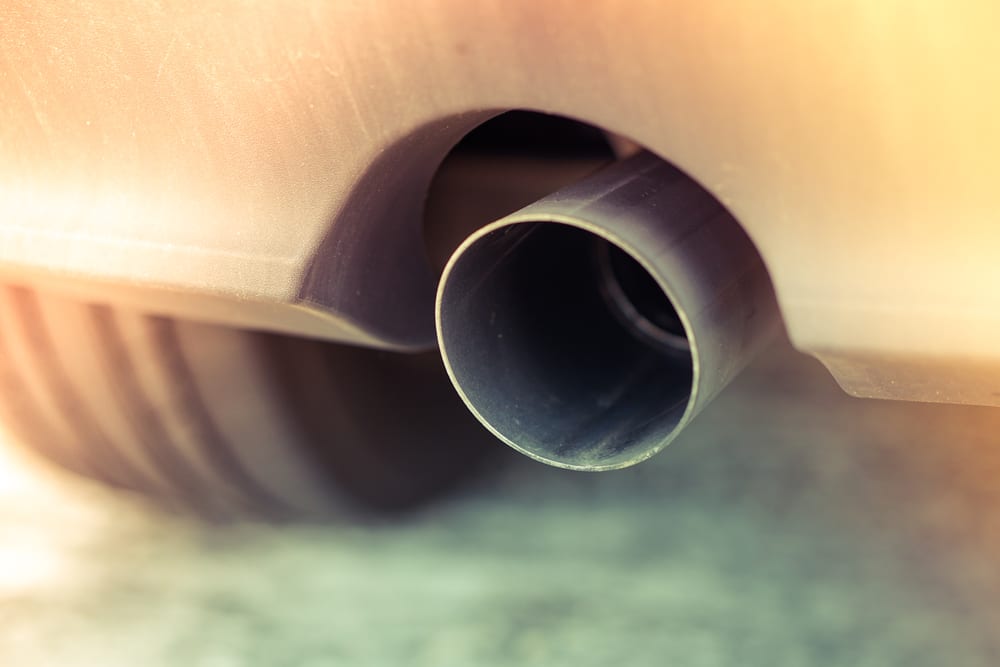

Internal combustion engines produce fumes known as exhaust in their normal operation. The exhaust fumes exit the engine’s cylinders after combustion and flow through the vehicle’s exhaust system for expulsion from the tailpipe. The exhaust system is made up of a series of metal pipes that transport the exhaust fumes to the rear, or sides of the vehicle where they can be safely released. While the exhaust system is relatively simple in its operation, it plays an important role in engine performance. Any issues with the system or its pipes can cause problems with the drivability of the vehicle. Usually a bad or failing exhaust pipe or tube will produce a few symptoms that can alert the driver of a potential issue.
1. Excessively loud exhaust making hissing sounds
One of the first symptoms of a problem with the exhaust pipe is an excessively loud exhaust. If any of the exhaust pipes or tubes break or crack, they can cause an exhaust leak that will result in an excessively noisy engine. The exhaust may produce a hissing or tapping sound that may become more pronounced during acceleration.
2. Smell of raw gasoline from exhaust
Another common symptom of a possible problem with the exhaust tubes is a noticeable exhaust smell. If any of the exhaust systems pipes or tubes become damaged and leak, the exhaust fumes may find their way into the cabin, giving off a smell of raw gasoline.
3. Decrease in power, acceleration, and fuel efficiency
Engine performance issues are another symptom of a potential problem with the exhaust tubes or pipes. If the pipes become damaged or corroded, they can sometimes produce an exhaust leak that can cause the vehicle to experience performance issues. An exhaust leak from a broken pipe can cause the vehicle to experience a decrease in power, acceleration, and fuel efficiency due to the loss of backpressure.
4. Hanging or dragging exhaust pipe
Another more serious symptom of a problem with an exhaust pipe or tube is hanging or dragging exhaust pipes. If any of the pipes break, they can sometimes hang or drag underneath the vehicle. The pipes may be visible from the sides of the vehicle, or may make noise if they contact the ground.
While exhaust systems are built specifically to withstand the high stress and heat conditions associated with engine exhaust, they are still prone to corrosion and rust over time. Usually a problem with the exhaust system will be quite obvious. If not for the noise usually produced, for the effect on engine performance that usually occurs. If you suspect that your vehicle may be having an issue with an exhaust pipe or tube, have the vehicle inspected by a professional technician, such as one from YourMechanic, to determine if the car needs an exhaust pipe or tube replacement.



